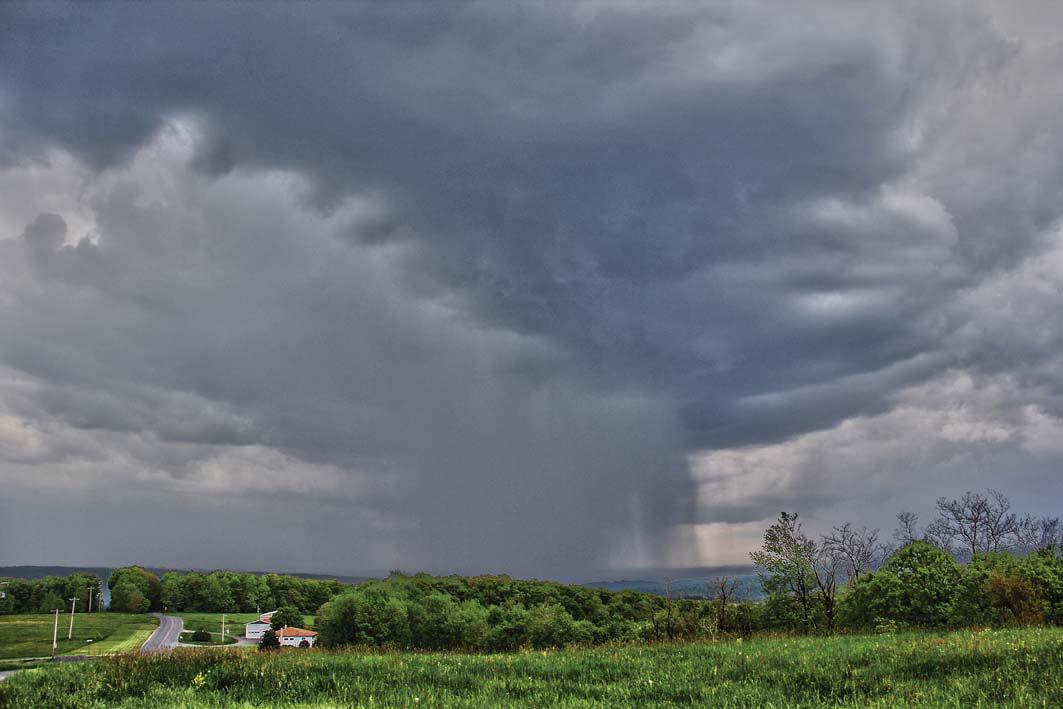
Consumer pressure in developed countries is forcing farmers to adopt more sustainable production practices. What is happening in South Africa?
The focus on sustainability in South Africa has increased in response to the growing awareness of the impact of agricultural production on the environment, the need to produce more food with fewer resources, stricter regulations for exports to the EU and UK, and climate change, which farmers contribute to and are affected by.
How do you think farmers feel about the pressure to become more sustainable?
Many South Africa farms have been in families for multiple generations. To me, this shows that local farmers are aware of the importance of and are motivated to look after our natural resources.
A big concern for many farmers centres on compliance: who will create the standards, what will they be, how they will be enforced, what costs will they bring, and what value will they add to their businesses? A lot of work needs to be done to improve the business case.
What are the biggest obstacles to sustainable production?
Environmental issues and challenges cannot be viewed in isolation; they form part of a bigger ecosystem of risks that farmers are facing.
Aside from soil degradation, water pollution, and adverse weather conditions, farmers around the world must juggle rising input costs, market pressures, subdued economic growth, and geopolitical tensions. On top of this, South African farmers must deal with a deterioration in infrastructure and logistical challenges that are further driving costs up. The cost-price squeeze created by these factors has resulted in many farmers being stuck in debt traps. They simply cannot afford to move onto production practices that are more environmentally friendly.
Denne historien er fra Farmer's Weekly 8 November 2024-utgaven av Farmer's Weekly.
Start din 7-dagers gratis prøveperiode på Magzter GOLD for å få tilgang til tusenvis av utvalgte premiumhistorier og 9000+ magasiner og aviser.
Allerede abonnent ? Logg på
Denne historien er fra Farmer's Weekly 8 November 2024-utgaven av Farmer's Weekly.
Start din 7-dagers gratis prøveperiode på Magzter GOLD for å få tilgang til tusenvis av utvalgte premiumhistorier og 9000+ magasiner og aviser.
Allerede abonnent? Logg på

New farmers' seedling pitfalls
Inexperienced farmers may be tempted to grow seedlings from seed themselves, but they have much to gain by trusting a seedling grower at a nursery to perform this task for them instead

South African avocado production: a success story
Avocado production in South Africa has expanded markedly since the industry's humble beginnings over 80 years ago. From a small grove planted in 1938 in what was then Nelspruit, the industry has blossomed to seven million trees planted on 20 000ha. Dr Guy Witney, project manager at Great Brak Avos, spoke to Annelie Coleman about the country's avocado production.

Unlocking value through livestock exports
Exporting livestock might sound like a daunting business that's better left for big companies, but Gerrie Ferreira, who farms near Oudtshoorn in the Western Cape, has been doing it successfully for almost 30 years, sometimes in partnership with other breeders. He spoke to Glenneis Kriel about the huge potential this market holds, and offers some advice for farmers who are contemplating going this route.

An agribusiness's dedication to community upliftment
For agribusiness NWK, located in Lichtenburg, North West, corporate social investment is an important part of creating a positive influence alongside financial returns. Johan Bezuidenhout, NWK’s group manager of corporate marketing and communication, spoke to Annelie Coleman about why the company chooses to invest millions of rands in the area it operates in every year.

Empowering dreams, transforming lives
Since its launch in 2013, the Agri's Got Talent competition has revolutionised the lives of many farmworkers by unlocking their hidden talents and fostering a culture of empowerment. Glenneis Kriel spoke to various finalists about how the contest has changed their lives.

Foreign investment: agriculture maintains its appeal
South Africa remains a popular destination for foreign investors, despite an often negative outlook from its citizens. It is a gateway to Africa, and with its counterseasonal production to the Northern Hemisphere and favourable weather, local agriculture is especially well placed to attract foreign interest, bringing with it hope for rural communities

The real value and message of COP29 for SA agriculture
While the 2024 Conference of the Parties may have disappointed those who hoped for real progress, it's more important for South African agriculture to highlight its role in carbon mitigation

Improving efficiencies in feed and grain milling
Bühler, a Swiss-based company that provides solutions and equipment for various industries, including food and animal feed processing, has pledged that by 2025, it will deliver scalable solutions that will reduce energy, waste and water by 50% in the value chains of its customers.

Tips for better olive production
At an SA Olive Association field day in November, industry experts shared ways to improve olive production efficiencies, from soil preparation to harvesting.

More effort needed to protect vulnerable cheetah
On International Cheetah Day, commemorated every year on 4 December, emphasis was placed on the vulnerability of the species.